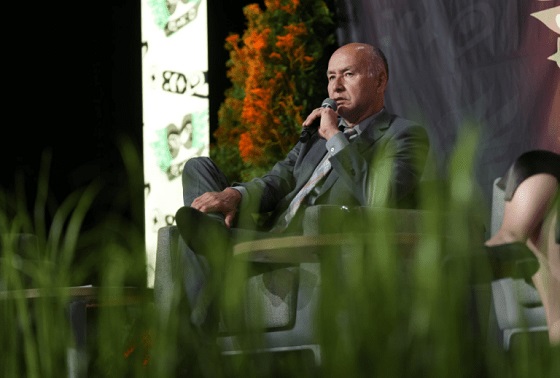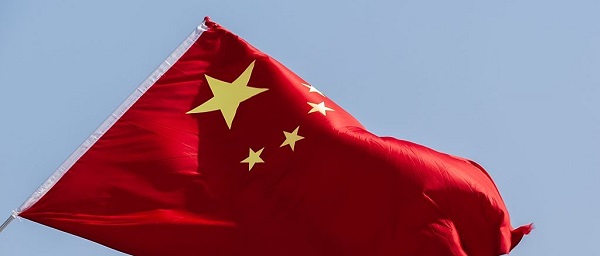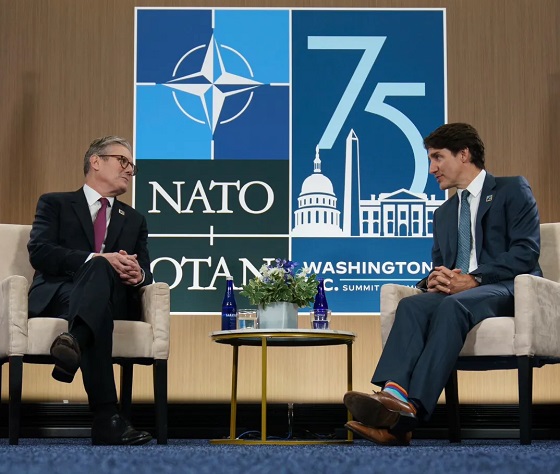Energy
Canada is no energy superpower

This article supplied by Troy Media.
 By Bill Whitelaw
By Bill Whitelaw
And pretending otherwise is a fool’s game
Canada is not an energy superpower. Not even close.
The term has become a convenient political crutch, used as a slogan to signal ambition without doing the hard work of building a unified national strategy. It’s a hollow label, unsupported by clarity, coherence, or consensus.
But what does an energy superpower actually mean?
An energy superpower is a nation that not only exploits vast energy resources but also possesses the infrastructure, political unity, and global influence to shape international energy markets.
Right now, Canada has none of these. Instead, we are mired in political disarray, inconsistent energy policies, and missed opportunities.
This misleading label is further complicated by Canada’s political fragmentation. Provincial policies are often at odds with one another, preventing any coherent national energy strategy. Alberta’s economy remains heavily reliant on oil and gas, yet its policies clash with those of Ottawa, which is pushing for a green transition. Meanwhile, Quebec has imposed a complete ban on new oil and gas development, deepening the divide.
This disunity makes it impossible to speak of Canada as an energy superpower.
How can we be a superpower when we can’t even agree on our own energy future? The result is a country torn between expanding fossil fuel production and pivoting to renewable energy, but with no clear path forward on either front.
Moreover, the term energy superpower is also misleading because it suggests that Canada is already a leader in the global energy market. But we are not. We lack the internal coherence and strategic focus necessary to claim this title.
Rather than being based on a solid, coherent energy strategy, the superpower narrative is little more than wishful thinking—a convenient narrative used by politicians to appeal to certain voter bases, but without addressing the hard realities that true energy leadership requires.
These political rifts and contradictions translate directly into real-world consequences.
Canada has failed to build the infrastructure needed to efficiently move resources. Take, for example, the Trans Mountain pipeline, which has faced years of delays and massive cost overruns, and the stalled East Coast LNG projects.
These serve as prime examples of our inability to capitalize on our energy potential.
The Trans Mountain expansion was initially pegged at $7.4 billion, but it ballooned to over $34 billion by 2023, with no guarantee that the government will recoup that investment. Meanwhile, critical LNG export projects in Eastern Canada remain stuck in regulatory limbo, with no consensus between provinces or between the provinces and the federal government. These delays and cost overruns show that, despite having some of the world’s largest oil reserves, Canada has been unable to turn its potential into action.
Even the energy sector itself is deeply fragmented. Industry groups such as the Canadian Association of Petroleum Producers, Clean Energy Canada, and the Transition Accelerator all propose vastly different roadmaps for the country’s energy future. Some are focused on expanding oil sands and pipelines, while others push for a transition to clean energy. But there is no unified national strategy, and this lack of coordination, coupled with the failure to reconcile these conflicting viewpoints, undermines any claim that Canada is on track to become an energy superpower.
If we continue down this path, the superpower narrative will not unite the country. It will fracture it further, reinforcing existing polarization and distracting us from the real work that needs to be done.
Instead of embracing a vague label of “superpower,” Canada needs to prioritize real, substantive action: infrastructure development, clear policy frameworks, and consensus-building among provinces and stakeholders.
For Canada to become a true energy superpower, we need to invest in projects that support long-term energy security, environmental sustainability, and economic growth. This means not just exploiting resources, but doing so with the necessary infrastructure to transport and refine them efficiently.
We also need to build a national consensus that recognizes the importance of all energy sources—fossil fuels, renewables, and critical minerals—and how they can work together to support both domestic needs and international export markets.
Canada must stop using the energy superpower label until we’ve demonstrated the political coherence and infrastructure needed to back it up. Until then, we need to focus on building consensus and strategy for the future, so that when we do claim the title, it will be earned, not merely wished for.
Bill Whitelaw is a director and advisor to many industry boards, including the Canadian Society for Evolving Energy, which he chairs. He speaks and comments frequently on the subjects of social licence, innovation and technology, and energy supply networks.
Troy Media empowers Canadian community news outlets by providing independent, insightful analysis and commentary. Our mission is to support local media in helping Canadians stay informed and engaged by delivering reliable content that strengthens community connections and deepens understanding across the country
Alberta
Fact, fiction, and the pipeline that’s paying Canada’s rent

From Resource Works
Is the Trans Mountain a fake, like some say the moon landing was faked?
It’s hard to interpret otherwise a persistent claim being made in media by British Columbia’s premier, David Eby.
This week he said that Alberta is “not even using” the new Trans Mountain pipeline from Edmonton to Metro Vancouver.


Could that be true? We decided to look into it.
Here’s what we discovered.
Since May 2024 when the Trans Mountain expansion project was opened, Alberta oil has flowed steadily down the pipeline from its origin in a suburb of Edmonton.
Credible international news organizations have reported that the new pipeline is 85% full. Indications are that by the period 2027-28, it will reach as close to 100% full as it’s possible to.
The number of ship calls to the Westridge coastal loading facility in Burnaby is on track to reach 400 by the end of the year. This strongly supports the contention that Alberta oil is flowing through the pipeline.


https://www.statcan.gc.ca/o1/en/plus/8439-trans-mountain-pipeline-delivering
I often say Trans Mountain is “paying Canada’s rent,” and I mean it literally. Ottawa owns the pipeline through Trans Mountain Corporation, and it’s already sending more than a billion dollars a year back to the federal treasury in dividends, interest, and fees.
It’s also boosting export revenues by letting Alberta oil reach world markets instead of being trapped at a discount — raising royalties, taxes, and paycheques across the Prairies. And every tanker that sails from Burnaby keeps tug crews, port workers, and coastal suppliers in business. That’s real money flowing through the economy — the kind that actually pays the rent for Canada.
In total, Resource Works examined nine claims that would all need to be true if Premier Eby is telling the truth about the pipeline being empty:
Truth Test: “Alberta isn’t even using the pipeline we bought them last time.”
| Category | Claim or Implication | Evidence / Data | Source(s) | Finding / Truth Rating |
| 1. Pipeline utilization | TMX is unused or empty. | Trans Mountain reports 757,000 bpd throughput on an 890,000 bpd capacity system (≈ 85 %). | Trans Mountain Q1 2025 Financial Results; Reuters (30 Jul 2025). |  False — pipeline is heavily used and approaching full capacity. False — pipeline is heavily used and approaching full capacity. |
| 2. Export volumes | Few or no shipments. | 306 vessels loaded at Westridge Marine Terminal by Q2 2025 (~20–25 per month). | Trans Mountain Q2 2025 Results; CER Market Snapshot (Sept 2025). |  False — consistent, large-scale exports are underway. False — consistent, large-scale exports are underway. |
| 3. Financial returns | No financial benefit to Canadians. | $729 million returned to federal government YTD 2025; projected >$1.25 billion for year. | Trans Mountain Q2 2025 Results. |  False — major positive fiscal returns already realized. False — major positive fiscal returns already realized. |
| 4. Shipper commitments | No demand for pipeline capacity. | 80 % of capacity contracted to long-term shippers; 20 % reserved for spot. | S&P Global Commodity Insights (Feb 2025); CER Snapshot. |  False — demand is locked in by long-term contracts. False — demand is locked in by long-term contracts. |
| 5. Operational timeline | Project still inactive or delayed. | Commercial service began May 1 2024; steady throughput growth each quarter. | Trans Mountain Corporate Reports 2024–25. |  False — fully operational since 2024. False — fully operational since 2024. |
| 6. Regulatory data | No verified data exist. | Monthly throughput published by CER and Trans Mountain Corp. | Canada Energy Regulator (CER Data Portal). |  False — independent regulators in fact consistently confirm the data. False — independent regulators in fact consistently confirm the data. |
| 7. Market impact | No improvement to Alberta’s market access. | WCS-Brent differential narrowed; Asia exports up sharply. | CER Market Snapshot (Sept 2025); S&P Global 2025 report. |  False — there is clear evidence of improved market access. False — there is clear evidence of improved market access. |
| 8. Ownership context | B.C. or Alberta “owns” the pipeline. | Owned by Government of Canada via Trans Mountain Corporation. | Finance Canada; Trans Mountain Corp. Ownership Statement. |  Misleading — federal ownership doesn’t mean Eby “bought Trans Mountain for Alberta.” Misleading — federal ownership doesn’t mean Eby “bought Trans Mountain for Alberta.” |
| 9. Provincial benefit analysis | No benefit to B.C. or Alberta. | Royalties, tax revenue, and employment gains in both provinces; marine services in B.C. | TMX Economic Impact Assessment 2024; CER regional reports. |  False — both provinces gain fiscal and employment benefits. False — both provinces gain fiscal and employment benefits. |
Last year, on three occasions I visited the Westridge Marine Terminal, twice on tours of the land-based facilities and the third time from the water. Ships were docked at the terminal on all three occasions, and I was told by staff that they were being loaded.
I didn’t actually see any oil at the oil terminal, but…
I have to admit I did not actually see (or smell) any oil. But I’m also aware that it is very much in the interest of the Trans Mountain Corporation to never expose any oil to where it can be seen, touched or smelled, since this would result in stiff fines and other harsh repercussions.
At this point, I have to say that there is no supporting evidence whatsoever that Alberta is using the Trans Mountain pipeline as a moon landing style hoax for some nefarious goal. There is no sign of a massive fraud that required collaboration among energy regulators, Alberta oil producers, the pipeline company, the international business press, numerous federal ministers, trade union leaders, numerous environmental organizations that expend enormous efforts to try to curtail shipments of the oil that they say moves through the pipeline, and the many First Nations that have actively supported from and benefit from the project in its completed state.
Of course, I’m well aware there is a political context here. Since October 1, Premier Eby has been engaged in a war of words with Alberta Premier Danielle Smith. She announced that she is determined to see get built another new pipe from her province to a federally regulated port somewhere on the Pacific coast.
And to be clear, this isn’t about giving Alberta a free pass. Premier Smith isn’t blameless either — she’s been happy to turn complex national issues into provincial sound bites when it suits her. The difference is that Canada can’t afford leaders on either side of the Rockies who substitute theatre for truth.
Premier Eby is right when he says British Columbians should not be forced to give up opportunities because another province wants to do something. Labour market fears are legitimate as we’ve seen in the recent past. But when it comes to infrastructure and investment opportunities, time and again Canadians have learned the hard way that “a bird in the hand is worth two in the bush.” There is no guarantee that today’s opportunities, pushed away, will materialize again at any point in the future.
There’s also a public context. At no moment in recent times have British Columbia residents been more supportive of the idea of building more oil pipeline infrastructure. The following slide from a poll by Innovative Research Group (shared by pollster Greg Lyle at a recent event organized by Resource Works) is consistent with other findings:

Even without out this quite exceptional condition, the current situation deserves a vigorous public conversation. It also deserves the truthful use of information.
My final verdict is this: We can all be fully confident that the Trans Mountain Expansion is indeed 85 per cent full, that hundreds of tankers have already sailed, and that more than a billion dollars has flowed back to Canadians.
Bottom Line
The facts show a functioning, profitable national asset:
- Operational since May 2024
- 85% utilized and rising
- Hundreds of ships exporting Canadian oil
- Over $1 billion flowing back to the public purse from Trans Mountain – that’s even before counting the upstream employment and impacts
This Resource Works analysis is based on public reports from Trans Mountain Corporation (2024 & 2025), Canada Energy Regulator (2025), Statistics Canada, S&P Global Commodity Insights, and Reuters.

Stewart Muir, visting the Trans Mountain pipeline’s Westridge Marine Terminal.
Energy
In the halls of Parliament, Ellis Ross may be the most high-profile advocate of Indigenous-led development in Canada.

From Resource Works
“We’re not talking about reconciliation anymore…we’re talking about prosperity, and making sure it lasts.”
Ellis Ross stepped onto the stage at the Vancouver Convention Centre last year. He didn’t reach for notes, and spoke plainly to the audience of business leaders, chiefs, and policymakers gathered for the Indigenous Partnerships Success Showcase (IPSS).
“I’m very proud to say that my band, the Haisla Band, is no longer talking about unemployment, poverty, reconciliation,” Ross said. “We’re talking about the management of wealth.”
Ross’s message was equal parts challenge and triumph, and was followed by a standing ovation for a man who has lived the slow climb from the margins to the mainstream. Once a water-taxi operator in Kitamaat Village, he is now one of the country’s most influential Indigenous political figures.
As he returns as a featured guest to this year’s IPSS, Ross embodies the event’s core theme: Shared Prosperity Now.
Born and raised in the Haisla Nation near Kitimat, Ross spent his early life in a community scarred by unemployment and a lack of opportunity.
“We had nothing,” Ross told the Arc Energy Ideas podcast last year. “We were begging for money, begging for infrastructure. We were one of the poorest bands in British Columbia.” Under his leadership, that changed forever.

As Haisla chief councillor from 2011 to 2017, Ross helped transform his community through industry partnerships rooted in resource development. He rejecting the old idea that development was a natural enemy of culture, and steered the Haisla into the energy economy on their own terms by embracing liquefied natural gas (LNG).
The Cedar LNG project, co-owned by the Haisla Nation and Pembina Pipeline, will become the largest Indigenous-majority-owned energy project in Canada’s history.
“It will have one of the lowest carbon footprints in the world,” said Crystal Smith, Ross’ successor as Haisla Chief Councillor. Cedar LNG is scheduled to begin operation in 2028.
For Ross, participation means power.
“If you uplift an Aboriginal community, the biggest beneficiaries, apart from First Nations, are the rest of British Columbia,” he said at IPSS in 2023. “We’ve got no malls or car dealerships on reserves. We spend it in our neighbouring communities.”
Ross’s journey hasn’t been without conflict. Writing in the Times Colonist in 2020, he warned of foreign-funded activists “hijacking our future” by dividing Indigenous communities and undermining resource partnerships.
“The last thing any of us need is intervention from foreign groups that want to hijack our future for their own objectives,” he wrote, condemning the influence of U.S. foundations funnelling money to anti-development campaigns.
He is vehemently opposed to “distraction politics”, and it became a hallmark of Ross’s political career. As MLA for Skeena from 2017 to 2024, Ross built a reputation for straight talk. He was eager to defend both workers and environmental standards for the modern resource industry.

With a pragmatic style, he gained admiration from both business leaders and former premier Christy Clark, who has praised Ross because he “fought for an LNG industry that will be the cleanest, the greenest, and the safest anywhere in the world.”
By early 2024, Ross announced his move to federal politics, saying he wanted to take “the principles I’ve developed over the last 15 years” to Ottawa.
Now the Member of Parliament for Skeena-Bulkley Valley, he’s now one of the most prominent Indigenous voices in the House of Commons, and one of the few with deep experience in both community governance and heavy industry.
Recently, Ross said he plans to hold the federal government to its promise of making Canada an “energy superpower.”
“For the area and for Canada, I want to hold this government accountable for those words,” he told the Prince George Citizen. “Projects like LNG Canada and Cedar LNG can show the world how Indigenous leadership and environmental responsibility go hand in hand.”
Ross’s attendance at IPSS 2025 comes at a moment when Indigenous participation in major projects is reshaping the national economy.
More than two dozen First Nations now hold equity in energy, mining, or infrastructure developments. It is proof that reconciliation, in his view, must be measured not in lofty statements but in actual ownership.
“You’ve got to leave a lot of those old narratives at the door,” he told delegates. “We’re not victims. We’re builders.”
Now, from the carpet of Parliament Hill to the polished floors of the Vancouver Convention Centre, Ellis Ross continues to speak for both the Haisla and the wider coalition of Indigenous and non-Indigenous Canadians who believe in growth through partnership.
As IPSS Event Lead Margareta Dovgal put it, “He bridges worlds—the boardroom, the band office, and the floor of the legislature.”
When Ross steps back onto the IPSS stage this November, expect the same mix of candour and conviction that has defined his career. “
We’re not talking about reconciliation anymore…we’re talking about prosperity, and making sure it lasts.”
-

 Alberta2 days ago
Alberta2 days agoFact, fiction, and the pipeline that’s paying Canada’s rent
-

 Alberta2 days ago
Alberta2 days agoAlberta Is Where Canadians Go When They Want To Build A Better Life
-

 International2 days ago
International2 days agoTrump-brokered Gaza peace agreement enters first phase
-

 COVID-191 day ago
COVID-191 day agoTamara Lich says she has no ‘remorse,’ no reason to apologize for leading Freedom Convoy
-

 Crime1 day ago
Crime1 day agoCanada’s safety minister says he has not met with any members of damaged or destroyed churches
-

 Business1 day ago
Business1 day agoTrump Warns Beijing Of ‘Countermeasures’ As China Tightens Grip On Critical Resources
-

 International1 day ago
International1 day agoTrump gets an honourable mention: Nobel winner dedicates peace prize to Trump
-

 Business21 hours ago
Business21 hours agoTax filing announcement shows consultation was a sham






